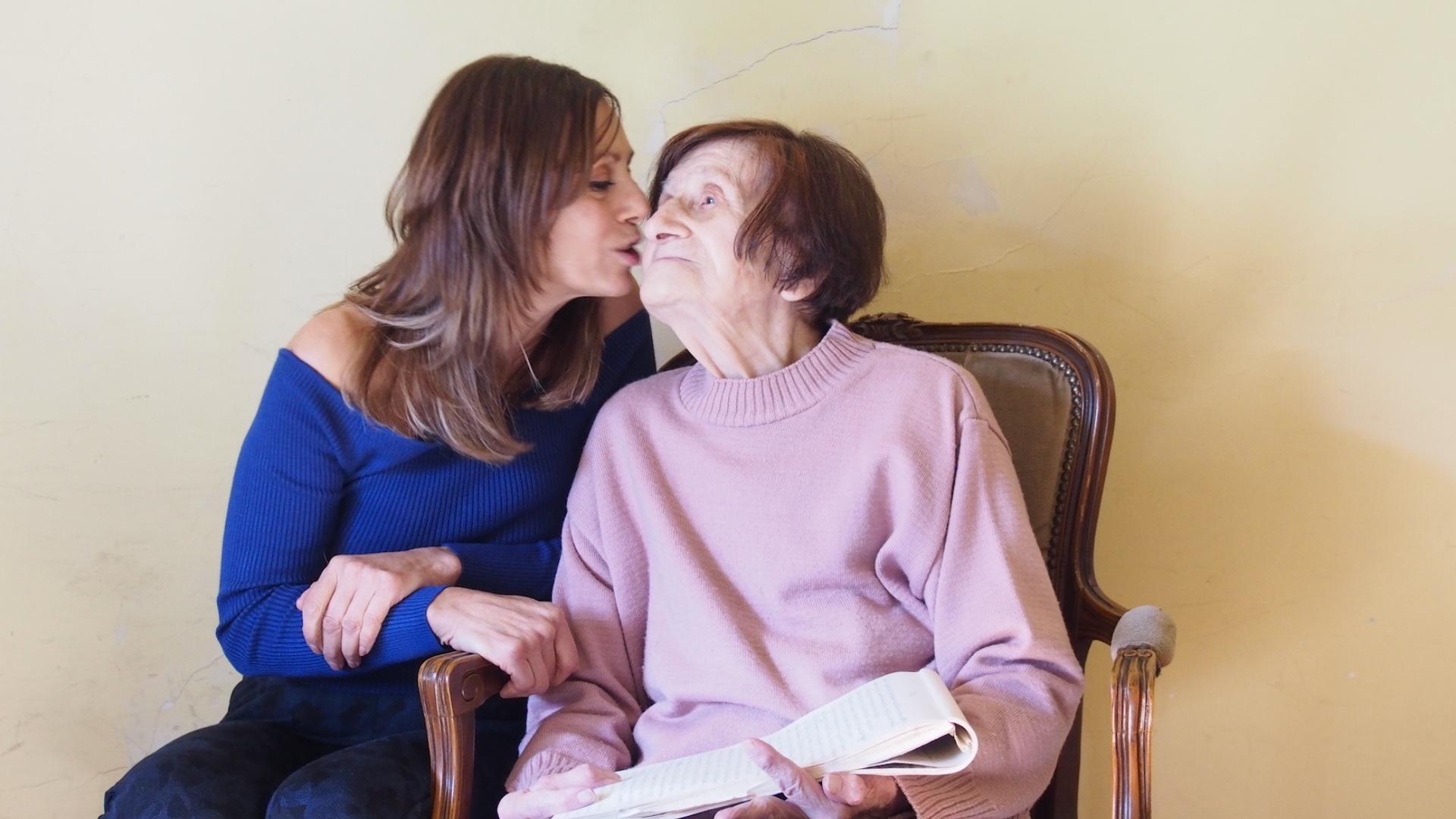By Helena Kidd*
‘You can do it, just walk, move your feet.’
This is what I say to my old mother Maria. Ninety-seven is her number.
The doctor’s appointment is today. My mother has to be there to discuss her medication, chronic back pain and constant dizziness. Her fear of falling to the ground is always there.
‘I feel dizzy, I’m going to fall down, I can’t walk, I can’t go,’ she says.
A morbid wish to be beneath earth’s dark soil – maybe this is how thought forms itself when one is old.
I have given up on dressing her in nice outfits; she prefers to wear the old familiar thin garments that don’t keep her warm. She doesn’t want anything new like a thick wool jumper. She has three coats but wears none.
‘They are too heavy,’ she says when I suggest she covers her cold frame to go out into Melbourne’s fickle weather.
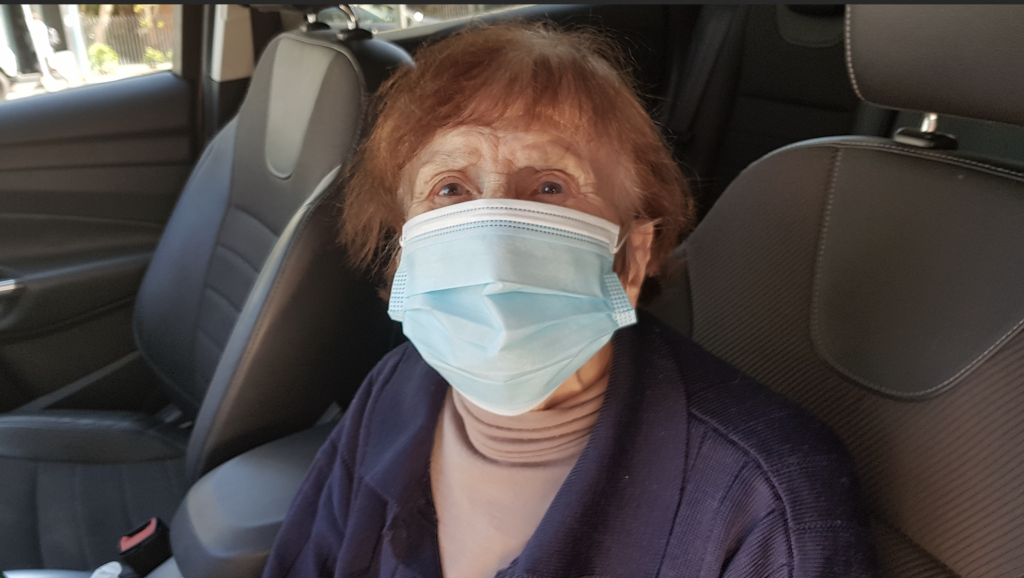
It only takes a few seconds before we move from the front door, one micro step at a time. The seconds turn into minutes, it’s a slow progress.
‘Grab the handrail, Mum, steady yourself,’ I say, words of encouragement.
She pauses at the front gate, a victory. Walking her to my car is my next challenge.
The trip to the doctor’s is the same, time after time.
‘I can’t, I can’t, I can’t go, just leave me, I want to go back inside my house,’ she says.
I cannot turn her around and let her stay in her safe haven today. ‘You have to go; we need to ask the doctor to increase your pain medication. You have to be there, you can’t go back inside, you’re outside now.’ My voice has a tone of frustration and forcefulness to it, almost angry, but I try to remain poised.
It’s like speaking to a naughty child. But this is my frail mother, my old mother. ‘Look there is my car!’ I point to the car.
‘The white one?’
‘No, Mum mine is the brown one.’ She never remembers what colour my car is.
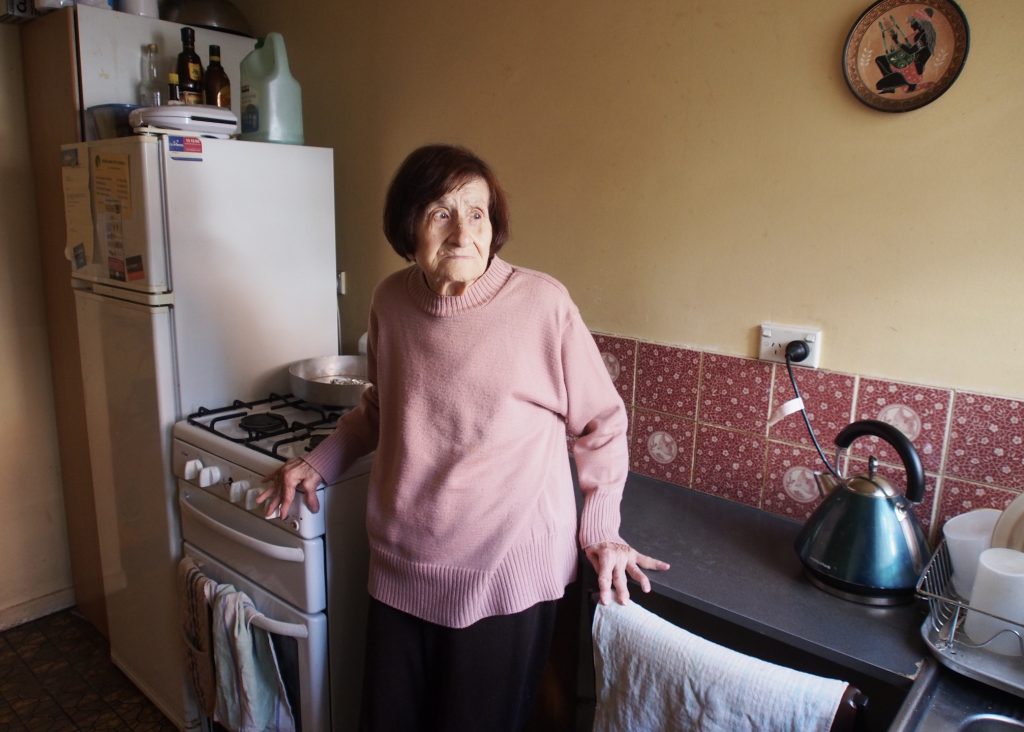
She struggles; her legs are weak, thin to the core, muscle mass a thing of the past. An entire body of loose saggy skin hangs, barren of youthful collagen. Her height is diminishing, her weight far too low, and the back pain is relentless.
My car is a small SUV, the height of the seat is level with Maria’s bony bottom. I open the passenger-side door while still holding her arm. She swivels from a standing position and plonk! she sits. The scent of clean hair greets me as I place the seat belt around her. I feel her gentle touch on my hand, how cold her fingers are. I place them under her jumper for warmth.
I drive past the doctor’s surgery because all the parking spots nearby have been taken. That’s fine, Mum needs a chance to walk. Lately she hardly moves from her warm bed, where her pain finds relief.
I often say, ‘Let me take you for a walk outside.’
‘Not today,’ she says. It’s always: not today. Movement remains in her past. Myopenia is evident in her bones, osteoporosis is close by.
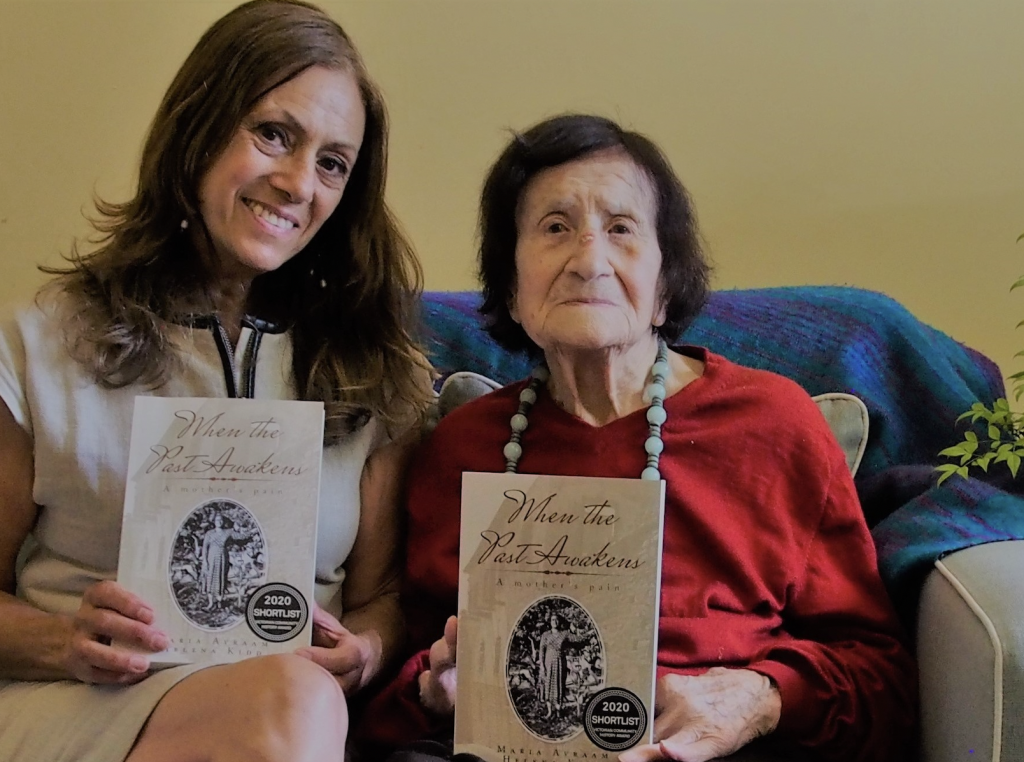
I take her vinyl handbag as I help her out of the car, slowly, everything is slow now, like a slow-motion movie scene. She grabs hold of me tightly, some strength found for this purpose.
‘I’m going to fall, I’m going to fall, I feel dizzy.’ Her voice is thin.
‘I won’t let you fall.’
Her frail body is stooped. Her head is always lowered towards the ground, her eyes are small slits, the brightness long gone. It is hard to tell where she is looking. Mum where are you looking? ‘Can you see where you’re going?’
She doesn’t reply. With trepidation we continue to shuffle along.
‘Are we close now?’ ‘Yes,’ I say.
We are one person in a three-legged race, but it is no race; we are stuck together, my side against hers.
‘I won’t let you go,’ I say. With my face close to hers, I notice her skin is a strange shade, sallow, blotchy. There are brown clusters on her nose, and two white hairs growing out of a raised mole. Her wrinkles are minimal for her age, her face is drawn with her mouth falling inwards even with new dentures.
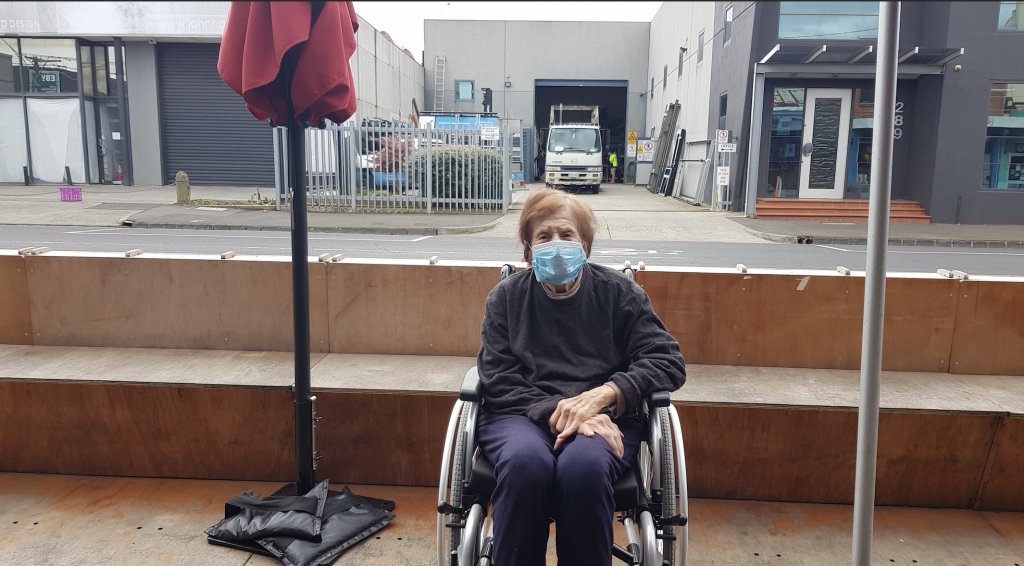
The soft foods I make for her hurt her gums. Her clothes are loose. Scoliosis is inside her worn out body, arthritis is in all the joints. Her lumpy knuckles raising upwards like exposed tree roots, twisted distorted fingers, each one has its own direction. My eyes move back up to her hair, it has a wide band of white regrowth, the brown is barely there. ‘Let me colour your hair today.’
‘Not today, not today, I can’t today…’
I stop gazing at her. We are at the doctor’s building. Mum’s knees buckle while she struggles up the small step.
‘You need to walk more.’ I’m aware that saying this does not help.
We shuffle into the crowded waiting room. A pretty young woman with a kind smile, sitting near the entrance, stands up and offers her seat to my mother. We both thank her. Sitting down is another struggle – it’s done slowly, my mother positioning herself in front of the chair, then she eases herself down to a crouch. It’s painful to watch. When she’s finally seated, I let go of her arm. I place her handbag on her lap.
As I stand beside her chair, I look down at Mum’s feet, she is wearing her velvet slippers, there is a hole in the fabric and her toe is sticking out. In a low voice, I exclaim, ‘Why didn’t you wear your leather shoes?’
‘It doesn’t matter Eleni! I am old now.’
*Helena Kidd is the author of the book “When the Past Awakens: A Mother’s Pain” which can be purchased via the Royal Historical Society of Victoria or Amazon

